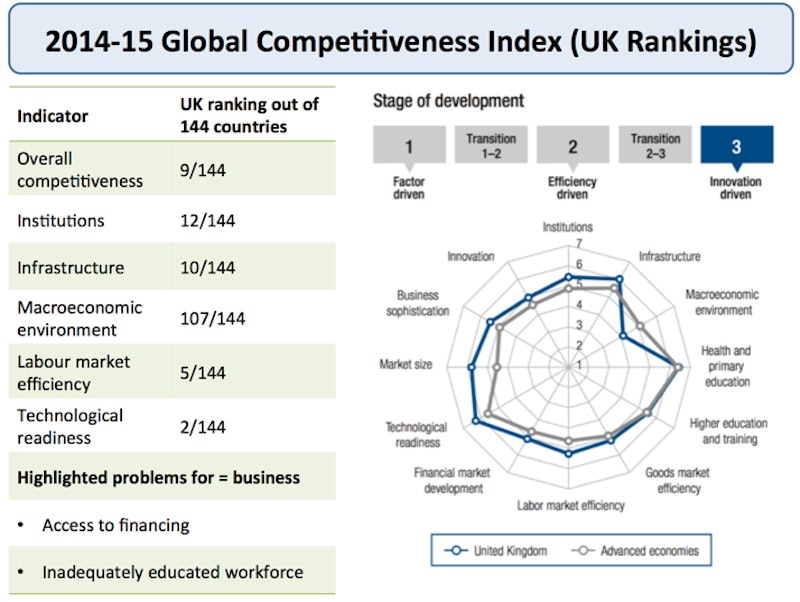Study Notes
Competitiveness and Economic Policies
- Level:
- AS, A-Level
- Board:
- AQA, Edexcel, OCR, IB
Last updated 22 Mar 2021
Raising competitiveness in domestic and overseas markets is a key objective for many governments. The usual focus is on improving supply-side performance but keep in mind that a sufficient level of demand is needed for many supply-side policies to be most effective

Education policy
- Investment in / improvements in functional literacy
- Stronger vocational education / apprenticeships
- Investment in higher education, encouraging inward migration
Infrastructure
- Transportation systems
- Communications e.g. super-fast broadband
- Investment in public service infrastructure such as new schools and hospitals
Labour markets
- Improving labour mobility
- Improving work incentives
- Better management
Supporting Enterprise
- Incentives for new business formation
- Access for small/medium sized businesses requiring finance for expansion
- Incentives for innovation and invention
Exchange rate and trade policy
- Possible intervention in currency markets
- Currency devaluation to boost export industries
- Tariff and non-tariff barriers
- Trade agreements
Macro Stabiility
- Maintaining low inflation / price stability
- Financial stability e.g. a sustainable banking system
- Avoiding credit / debt bubbles
- Avoiding boom and bust in property markets
Exam Tip: Policies to improve competitiveness must always be contextual i.e. they must suit the specific challenges and demands facing businesses in a particular country. Be prepared to evaluate the likely effectiveness of different supply-side policies.
You might also like

UK Productivity Gap Widens
20th October 2014

The Cross Rail Project
22nd September 2014

After the BRICs, the GIPSIs: Tackling Europe’s Problems
10th September 2014

New Infographic on Human Capital
20th August 2014

Open Data - Britain leads the world
23rd July 2014

Universities, Business and the UK Economy
17th July 2014

Export Complexity - Hidalgo and Hausmann
9th July 2014

Cost Benefit Analysis - The Crossrail Project
27th April 2014